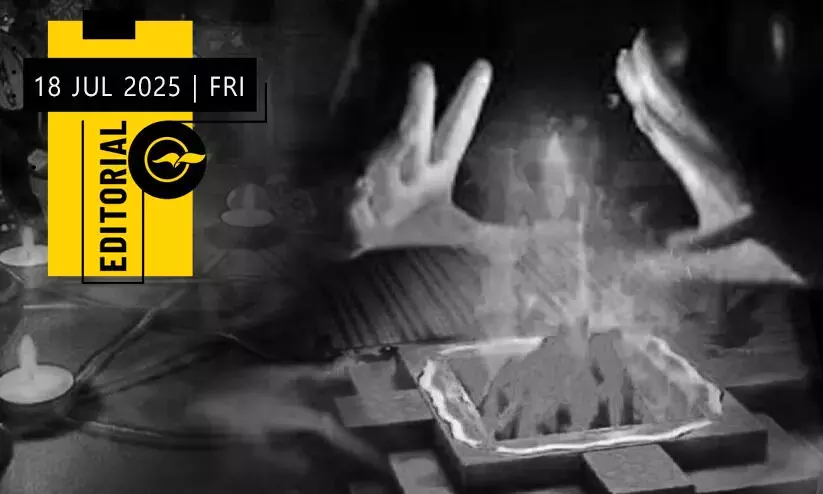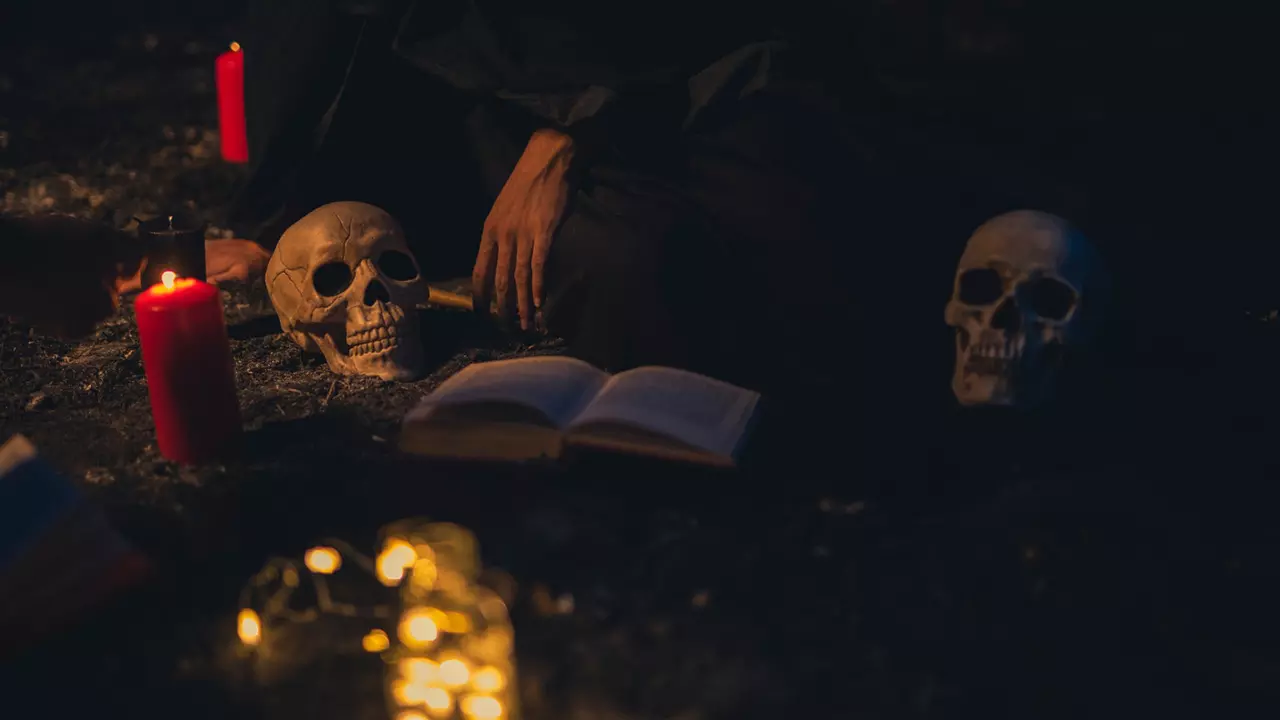
The government should not shelter black magicians
text_fieldsThe state government has informed the High Court that it has not backed away from legislating against black magic and superstitious practices, and that the delay in bringing the law is due to legal and administrative complexities. It is welcome that the government has reversed its earlier decision of not proceeding with the legislative process. Superstitions and witchcraft rituals are increasingly spreading across the state, cutting across caste and religion. Heinous practices such as human sacrifice and nude worship are taking place. ‘Magical’ healing practices are also on the rise, posing a challenge to modern medical science. Meanwhile, just a month ago, the government had officially informed the court that the Cabinet had decided not to proceed with the legislation and that courts could not direct the legislature to make laws on specific subjects. One wonders which practitioner of black magic advised the government to take such a stance — one that conveniently shelters superstitious businessmen and fraudulent occult practitioners. It seems likely that officials, who boldly ridicule and threaten individuals living peacefully, adhering firmly to their religious beliefs, have now bowed before the very black magic circles. Given the strong public criticism that followed, it is indeed a welcome move that the government has now reversed its earlier decision.
The government has cited the complexity of distinguishing between superstition and faith as one of the main reasons for the delay in enacting the legislation. It was against the backdrop of rising superstitions and evil rituals in the state that the government had announced a special legislation six years ago. Based on the recommendations of the Law Reforms Commission chaired by Justice K.T. Thomas, practices like black magic that cause physical harm in the name of superstition, sexual abuse under the guise of rituals, denial of medical treatment, and exorcism were to be criminalised. Following this, a draft bill had also been prepared. The draft legislation, which included provisions for imprisonment and fines, treated acts such as human sacrifice, black magic-based treatments, exorcism, physical or mental abuse in the name of treatment, financial fraud in the name of miracle cures, obstruction of medical care, and the isolation of menstruating women as criminal offences. It also clearly excluded religious rituals by distinguishing them from such practices. The human sacrifice incident in Elanthoor in 2022 significantly strengthened the demand for this legislation. Although the government at the time had promised to expedite the lawmaking process, it soon backtracked on its decision. Despite projecting itself as a progressive and reformed society, the average Keralite's life remains entangled in all kinds of superstitions, occult practices, and rituals. Posters claiming divine powers of self-styled godmen lining the roadsides, full-page advertisements in newspapers, fake news about miracle cures, charms and wealth-attracting devices, and samadhi rituals have all become part of the everyday life of the so-called progressive Malayali.
Another marketing strategy in this realm is the flood of videos on social media that boast of miraculous powers. A casual glance at YouTube reveals bizarre claims—from saints who can stop planes to magical newspapers that heal diseases. What is alarming is that the average Keralite is not only willing to believe these claims but is also ready to spend money on them. “Small investment, big profit” – this idea, along with the influence that extends even to the highest centres of power, continues to embolden fraudsters in this field. Newly emerging superstitions and rituals unearthed from obscurity have begun to dominate even wedding ceremonies. Since these practices have become significant sources of income for the priests, they actively encourage and promote them. It would not be entirely wrong to say that the influence wielded by those indulging in such superstitions and miracle claims over a progressive government is one of the reasons for the delay in enacting relevant laws. We may not have achieved remarkable progress, but it is worth noting that both Maharashtra and Karnataka have already moved forward with similar legislation. The laws in these states directly address all prevailing superstitions and occult practices. If a strong anti-superstition and exploitation law is not urgently enacted and effectively implemented in Kerala, the state risks regressing faster than it once progressed. In such a scenario, it would be unjustified to continue referring to Kerala as “Nava Keralam” (New Kerala) in its true sense.













